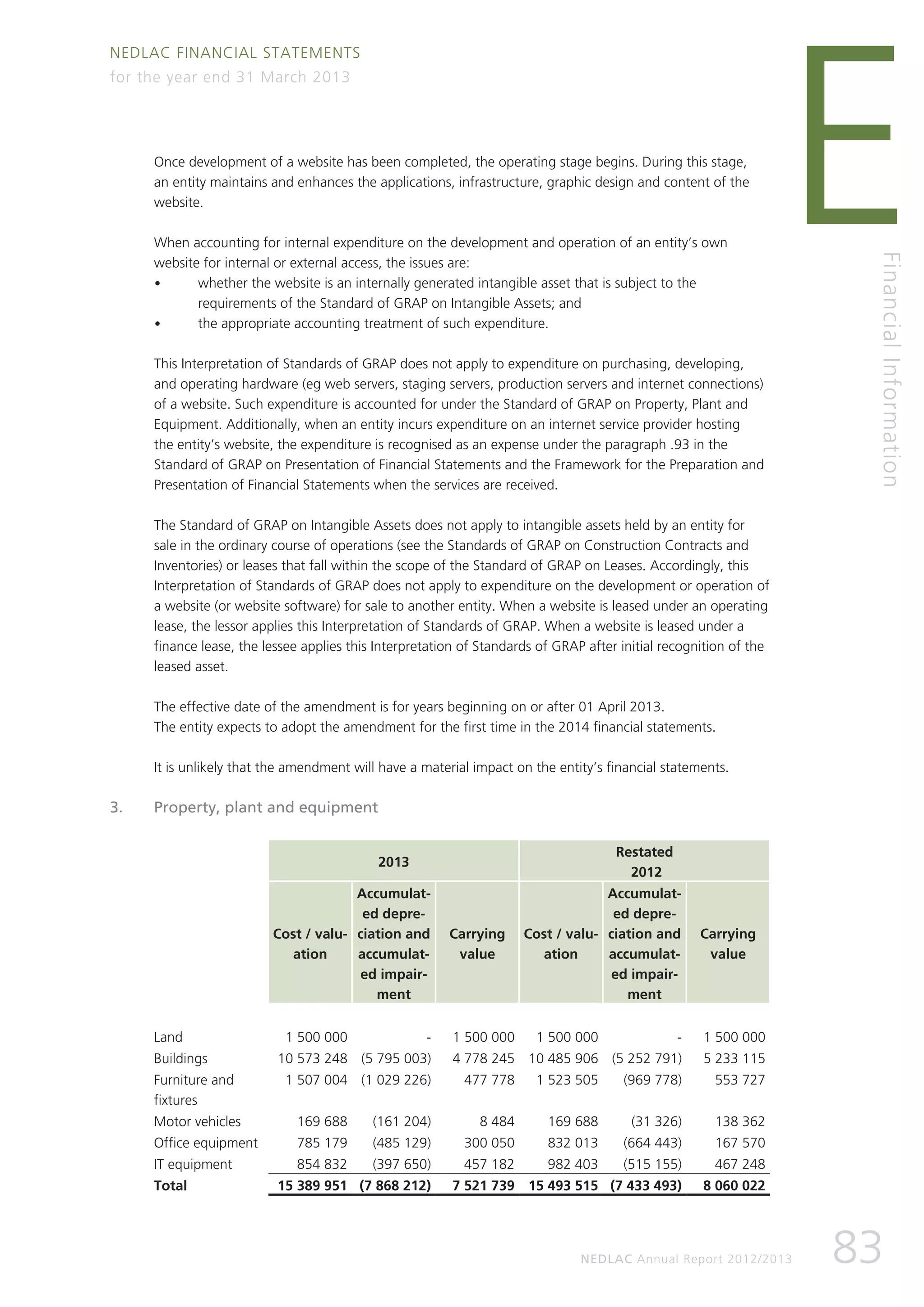The document is the 2012-2013 annual report of the National Economic Development and Labour Council (NEDLAC). It provides an overview of NEDLAC's strategic goals and activities over the past year, which included upgrading its capacity, promoting more effective engagement between social partners to address unemployment, poverty, and inequality, and strengthening social dialogue. The report details NEDLAC's mandate, governance structure, financial performance, and achievements in its focus areas of development, labour market, public finance and monetary policy, and trade and industry. Messages from the leadership of NEDLAC's constituent partner groups emphasize continuing its work to find solutions to South Africa's socioeconomic challenges through cooperation.







































































































